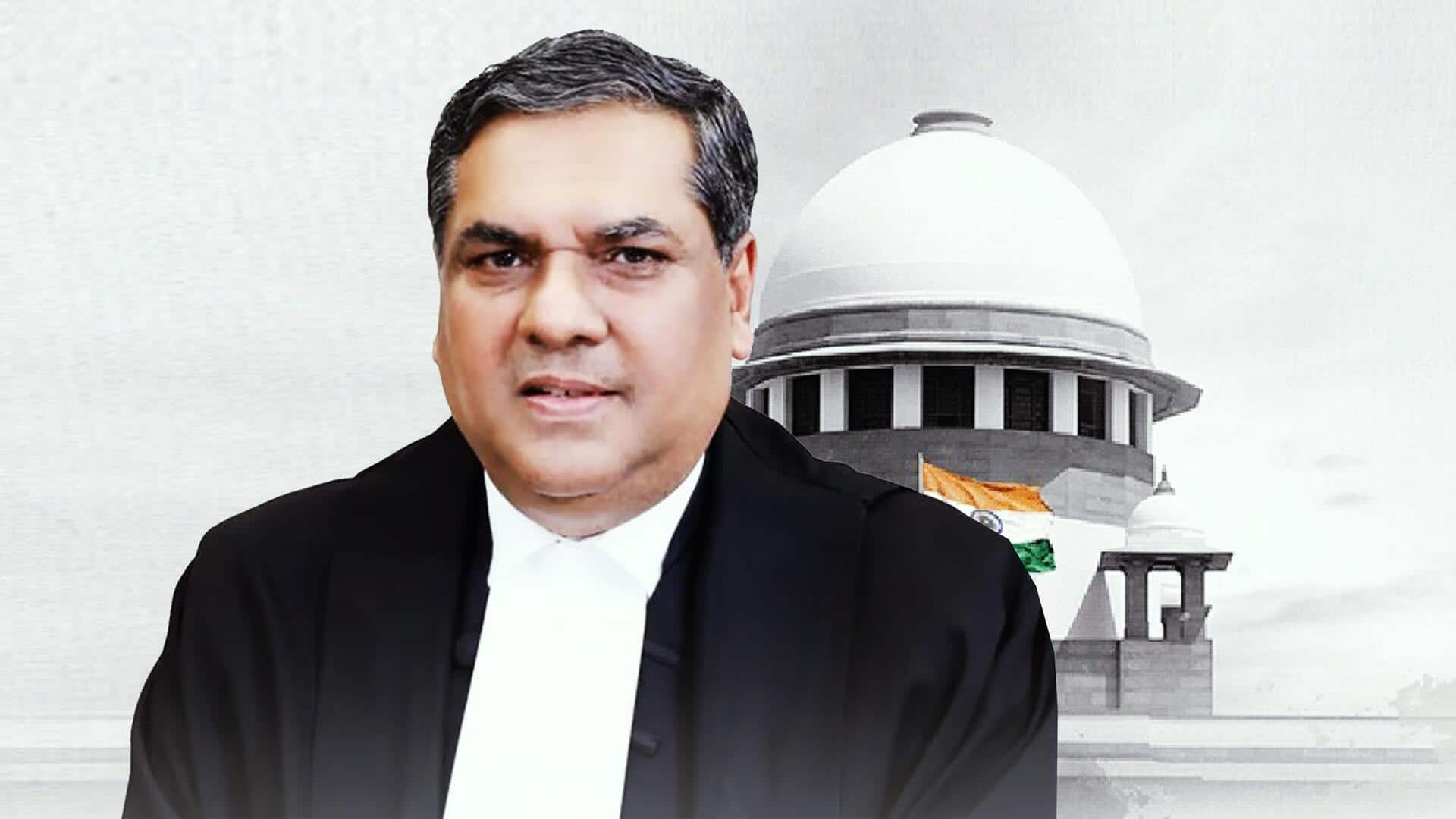
Who is Justice Sanjiv Khanna, CJI DY Chandrachud's proposed successor
What's the story
Current CJI DY Chandrachud has nominated Justice Sanjiv Khanna as the 51st Chief Justice of India (CJI).
The outgoing CJI recommended his immediate junior as successor in a letter to the Union Law Ministry, following the tradition.
If the government approves, Justice Khanna will assume office on November 11, 2024, after CJI Chandrachud retires.
He will serve as the CJI until his retirement on May 13, 2025.
Career journey
Justice Khanna's legal career
Justice Khanna started his legal career in 1983, enrolling with the Bar Council of Delhi.
He first practiced at the Tis Hazari district courts before moving to the Delhi High Court and other tribunals.
In 2004, he was Senior Standing Counsel for the Income Tax Department and Standing Counsel (Civil) for the National Capital Territory of Delhi.
The next year, he was appointed as an additional judge of the Delhi High Court, becoming a permanent judge in 2006.
SC elevation
Justice Khanna's elevation to the Supreme Court
Justice Khanna has also served as Chairman/Judge-in-charge of the Delhi Judicial Academy and other important institutions.
In a rare move, he was elevated to the Supreme Court on January 18, 2019, without having served as Chief Justice of any High Court.
He is also the Executive Chairman of the National Legal Services Authority and a member of the Governing Council of the National Judicial Academy in Bhopal.
Legal impact
Landmark rulings and legal contributions of Justice Khanna
Justice Khanna has been a part of several landmark rulings.
He was a part of benches that upheld important decisions such as clearing the Central Vista Project and upholding the abrogation of Article 370.
In a landmark ruling, he had stressed Article 19(1)(a) cannot be used to defeat Article 21's fundamental rights.
He was also instrumental in granting interim bail to former Delhi Chief Minister Arvind Kejriwal during Lok Sabha elections.
Legal perspective
Justice Khanna's stance on bail under PMLA
Justice Khanna played a pivotal role in a ruling involving former Deputy Chief Minister Manish Sisodia, highlighting that delays in legal proceedings could justify bail under the Prevention of Money Laundering Act (PMLA).
In another key case, he headed a bench that rejected the demand for 100% verification of EVM votes using Voter Verifiable Paper Audit Trails (VVPATs).
The April 2024 judgment endorsed the Election Commission of India's efforts to ensure accurate and secure voting through EVMs.
Views
Justice Khanna's views on Article 370
Justice Khanna was also part of a five-judge bench that recently ruled the electoral bond scheme unconstitutional, determining that anonymous donations through these bonds violate the public's right to information, a key factor for informed voting.
Additionally, he upheld the abrogation of Article 370, arguing that although the provision reflected a unique aspect of India's federal structure, it did not grant Jammu and Kashmir sovereignty.